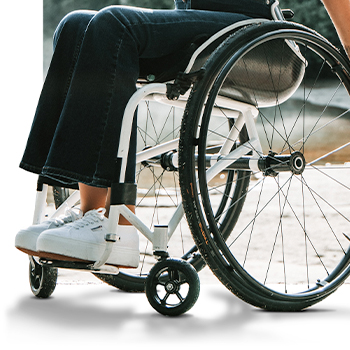
Within months of taking the generic version of the Yaz birth control pill, drospirenone, to even out her menstrual cycles, Taylor Smoot developed multiple blood clots. The clots required 17 surgeries and left Taylor with 11 stents in her legs and stomach. She can’t do sports or walk long distances. She is, for all intents and purposes, permanently disabled at the age of 17.
The final blow for the Smoot family was that they could not sue the drug’s maker, Bayer, because Taylor took the generic rather than brand-name drug. Bayer was well aware of the risks of blood clots from Yaz and yet marketed Yaz as “safer” than other birth control pills. Because she took a generic version of Yaz, Taylor will not benefit from Bayer’s nearly $1.7 billion settlement with more than 8,000 women who took Yaz and suffered serious side effects.
Consumers Who Take Generics Currently Have Second-class Legal Status
Legal discrimination against consumers who take generic medications – which now represent 80 percent of all prescriptions written in the U.S. – is at the heart of a battle over generic drug labeling going on between the FDA and consumer groups on one side, and drug makers on the other. The outcome will either lift generic drug consumers from their second-class legal status, or continue as a loophole for drug makers to avoid legal responsibility for drug-related injuries.
Under the FDA’s current policy, generic drug makers cannot update the risk information on their labels until their brand-name counterparts do, even if there’s substantial new information about risks, or greater risks associated with the drug. This policy has protected generic drugs for years from liability for injuries and death. The Supreme Court upheld this disparity in rulings in 2011 and 2013 noting that generics were prohibited by law from updating risk information until brand name drug makers did.
Time is Running Out for Consumers to Have a Say
The FDA has proposed to change this policy. The agency wants to give generics the authority to update their labels as new information about risks becomes available. This would be a huge safety benefit to patients, but drug companies – generic and brand name – are waging war against it. Many makers of brand-name drugs also make the generic versions, and independent generic makers just don’t want to be held accountable, period.
The FDA has been taking public comment on its proposal. It recently extended the comment period to April 27 to allow drug makers more time to rally against the changes. Congress appears to be wavering on supporting the FDA proposal under a heavy onslaught of drug company lobbying. Public safety hangs in the balance. Members of the House Subcommittee on Health need to hear from us.
Email them and tell them to support the FDA’s proposed rule AS IS. Urge them not to allow this policy change to be buried or watered down by drug makers who don’t want generic drug users – and that’s most of us – to have legal recourse if we are severely injured by a drug we would not have chosen if we’d been given the latest facts about its risks.
